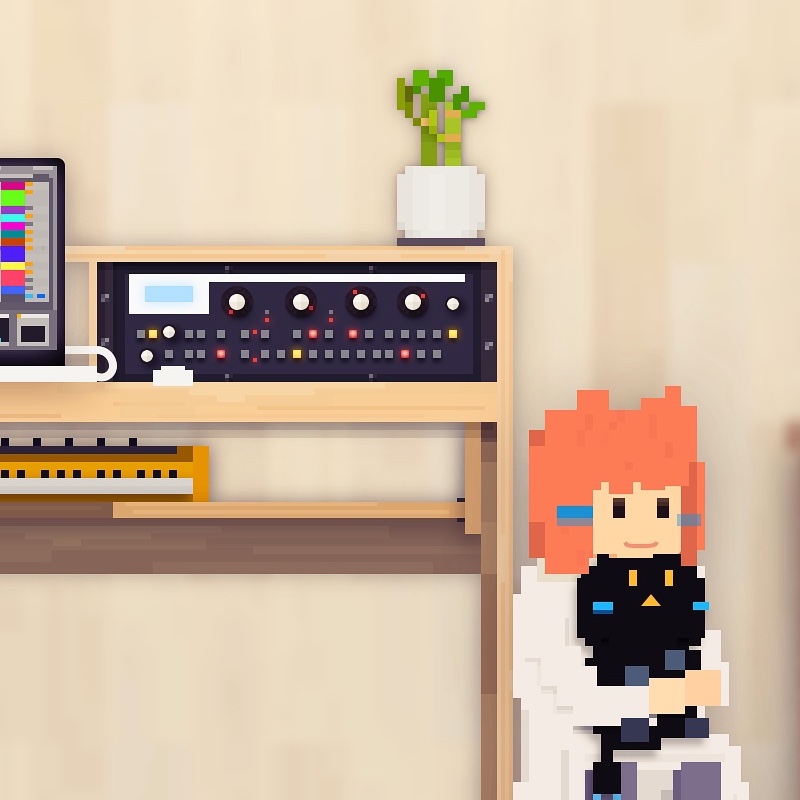Contents
8. Value of Music Theory
In the previous section I picked up a bad case where music theory could harm you, or take you time than it benefits. But this can be avoided by innovating/updating the theory.
Now I’d like you to have a view from the opposite side — How useful a music theory can be. Let’s take a look at its positive aspect, again using 3 layers.
“Names” Layer
The benefit of learning names is simple: You can verbalize sounds, which otherwise stay invisible to our eyes. Music is a unique kind of art on this point. Therefore, the importance of music theory cannot be equated with theories of painting or grammar. Heinrich Schenker, a renowned music theorist of the 20th century, described the characteristics of music as follows.
All art, with the exception of music, rests on associations of ideas, of great and universal ideas, reflected from Nature and reality. In all cases Nature provides the pattern; …(omission)… Only music is different. Intrinsically, there is no unambivalent association of ideas between music and nature. …(omission)… mankind should take more pride in its development of music than in that of any other arts.
Schenker,Heinrich. HARMONY
That’s a good point. Say you copy just what you see to paper and it becomes a decent “painting art”. But in music you have to create a song from nothing! There lies the difficulty of songwriting.
Invisible Art
Among five human senses, sight is the largest source of information. Its precision of analysis, vocabulary regarding it, memory strength…… In every aspect it’s overwhelming.

Take a look at the painting above. It’s the botched restoration of a Catholic painting by Spanish elderly lady, which made headlines in 2012. It’s an incident where attempts to restore the painting on the left resulted in the outcome seen on the right. Well… it doesn’t look quite right, does it? Yeah this is……a total failure. You can see it at a glance! And if asked to explain what’s bad about it, you can point out various issues.
Bla bla bla. You can point out very specific flaws without much observation. Then, what about music?
This is a track from the movie “Interstellar”. I love the atmosphere of this song — Cold, quiet, dusky and melancholic. Say I got inspired by this and tried to make a song with similar feel.
- Title : “The Silent Planet – Uranus”
What do you think? Does this song have cold, quiet, dusky and melancholic vibes? Whether yes or no, can you explain why? …… It must be hard, at least harder than the painting above.
The big gap between our eyes and ears is right here. When it comes to shades and colors, we’re super sensitive. Even with a set of 100 colored pencils, you can pick the perfect one in a snap. But when it comes to music, you can never do it with that ease.
How can you analyze?
To tell the truth, the piece above is CRAP. From theoretical perspective, you can find many factors that have a sultry and mascular feel. As it stands, it’s unlikely that the imagery I originally wanted to convey will effectively reach the audience.
Stephen King said “Imitation precedes creation”. But in music, even imitating is tough work! Furthermore, even if you sense you’ve failed to imitate well, it’s often difficult to analyze what went wrong. You can’t even reflect on your mistakes.
How can you memorize?
Also, non-verbalized information isn’t easily stored or retrieved in the brain’s memory. It’s simply a waste.
Have a glance at these logos and now you’ve already got one good design pattern — Blue with yellow as an accent. It’s super-easy because you have sight, and you have names of colors.
With the help of linguistic data your knowledge is organized. Not learning music theory means not using the most incredible invention to mankind, a language.
“Usages” Layer
Next, the merit of “Usages” layer is also very simple : It saves you time.
“Usage” layer, it is a huge database of effective use of specific pattern found & established in the past. It’s like a library you can access to explore new techniques.
“Memento mori. Why do you spend a lifetime discovering what’s already discovered? Learn them quickly and take your time to discover the true originality of your creation” …… is the mindset of those who learn music theory.
Precious Time of Exploring
That said, it is also true that the time you freely explore the universe of sound is precious. In fact, such experience can smoothen the process of learning theories like “Ah, I’ve been already using this technique in my song. didn’t know it’s named such.”
So it’s totally up to you when to start learning theories. It may not necessarily be “today is always the best day to start”.
“Manners” Layer
Lastly, the merit of “Manners” layer is, again, it saves you time.
Theories clarify the characteristics of each genre, or a specific artist, which is time-consuming to inspect on your own. But note that “Manners” are specific to each genre, so you have to sort out what is important to you. If you’re dedicated to one genre, especially simple one such as punk rock, techno or hip-hop, you may well be able to learn the manner of it naturally.
In these genres, song formats are relatively easy to copy. Or, elements not covered in theoretical books become important, such as synthesizer sound design.
So, while there are numerous articles listed on the index page of this site, it’s unlikely that all of them are deemed practically useful by everyone. Therefore it’s also a valid choice to only learn the basics and supplement with skill and experience. And it should never be considered as “failure” or “setback”. Moreover, techniques learned through copy or cover songs are in no way inferior compared to theoretical knowledge. They are also legitimate forms of practical knowledge!11
To Quit is Not To Fail
So it depends on a person to what extent they should learn. In the TOC page there are countless articles but few people would need all of them. So very important notice here is; you don’t have to go through all the course of music theory. A clever way is to quit studying at some point. It is not failure. It is a real strategy.
Queens said “Too Much Love Will Kill You”. Similarly, too much studying will kill your time for songwriting!
9. Demerits?
You may be anxious about rumors that learning music theory deprives you of freedom, originality, musicality, turning you a machine producing uninspiring, commonplace, conventional songs. Yeah yeah it should happen, in the case you’re taught a system made 100 or 200 years ago as “The Rules of Right Music”.
Depending on how you’re taught, it can put a curse on you. This is tragedy. But this ain’t happen to you because you’ve already been “vaccinated” against this disease by watching the history of music theory and what it really is.
Can’t you draw a picture freely once you know the names of colors? Can’t you hit on a crazy idea once you know the standards of scenario? Never. Opposite. Theory and instinct are not in confrontational relations at all. On the contrary, theory revitalizes your instinct, to make you reach even higher level.
Romance Lost
Having said that, Some romance or mystique for music would be lost because music theory discloses many aspects of music structure like “just try using this and you’ll get XXX sound.”
Imagine a child who tries to use a box of watercolor paints for the first time, wondering what color will come out when paints are mixed, told by someone “Hey, mix red with blue if you want purple”. It’s a bit monotonous way of studying, isn’t it?
So it is reasonable to put off studying until you get satisfied with that kind of experience. But remember: Even after you start studying, you still have a lot of room to explore by yourself where you have not yet learned theoretically.
Changes in Approaching Music
Another risk is that you might end up only seeing what you can see through theory. For example, you might just focus on the chord progressions of songs and conclude, “All these songs have the same chords, boring.” Despite the fact that the depth of music lies in the combination of many other elements like melodies, lyrics, and sounds.
There’s also the possibility of losing confidence in your own originality because theory presents so many patterns as “standard”. You might find out that your favorite techniques are already classic moves used in countless hit songs, and then you start worrying that it’s not cool to end up the same as the well-worn patterns😂
While these kinds of concerns can be prevented with the right mindset and approach, they are risks that should not arise before you learn theory anyway.
So, it’s totally fine to have a period where you want to try all sorts of stuff on your own. But don’t forget, beyond that initial level of romance, there’s a whole world of thrill waiting for you once you’ve started learning the theory.
To sum up, music theory is the information technology of music. It is a language to handle musical information, and it is a database of famous patterns or manners.
Review
The essence of music theory lies in its function as a “language” for encoding sound. Music, the invisible art, can only be efficiently remembered, analyzed, and described through language.
Furthermore, acquiring this language enables you to get information you need, such as what characterizes a particular genre or artist, what is conventional and what is innovative, how a musical expression can convey various impressions, etc.
By studying music theory, you may lose the “freedom to explore everything alone,” but in return, gain the “freedom to discover what you could never find alone in a lifetime.”
So far I think I answered most of the questions people may have on music theory. Finally, it’s time to decide whether to start learning it or not.

